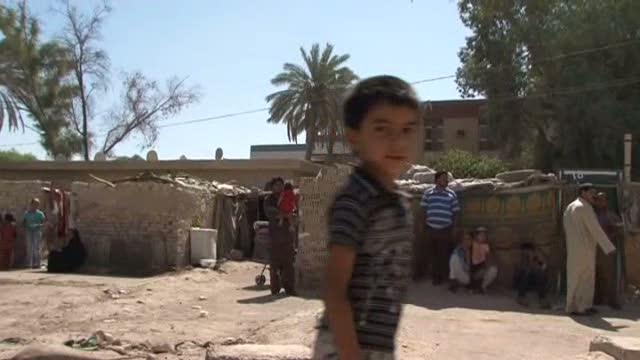UNHCR completes repatriation of 155,000 Liberians
Making a Difference, 4 January 2013
MONROVIA, Liberia, January 4 (UNHCR) – The UN refugee agency has completed its successful repatriation of more than 155,000 Liberians, 23 years after the start of the civil war in their homeland that made them into refugees.
The final 724 Liberians were helped home from Guinea on the last weekend of 2012, officially ending a programme that began in 2004, a year after peace was restored in the West African nation. As of 1 January, UNHCR says there will be no more organized voluntary repatriation for Liberians.
During Liberia's civil war, which broke out in December 1989, some 750,000 civilians became either internally displaced or refugees. Some refugees spent more than two decades in countries such as Côte d'Ivoire, the Gambia, Ghana, Guinea, Mali, Nigeria, Sierra Leone and Togo.
Peace was restored in 2003 with the deployment of UN peacekeepers and last June Liberians who had fled the fighting for other countries ceased to be considered refugees. Since 2004, UNHCR had facilitated the voluntary repatriation of 155,560 Liberian refugees, mainly by road convoys and flights.
"What happened on 30 June, 2012 was the end of refugee status for Liberians. What is now happening is the end of voluntary repatriation of thousands of refugees who had registered to return home," said UNHCR Representative in Liberia Cosmas Chanda. He called it a remarkable achievement for humanitarian assistance and evidence of the restoration of peace and stability in Liberia.
"In 2012, we facilitated the return of about 29,380 Liberian refugees, exceeding our initial planning figure of 15,000," said Chanda. "We are thankful to everybody for this accomplishment, including donors for their support and to refugees for embracing the voluntary repatriation process."
UNHCR paid each refugee above 18 years old US$375 to defray reintegration and transportation expenses to their final destination. Each refugee below 18 years received US$275.
"I am going to use the money I receive to start up a small sailing business to support my family's fishing activities," said Oretha, a 20-year-old mother of four who was too young to remember when her grandmother brought her to Côte d'Ivoire to escape the war. She was among 600 Liberians in the last convoys to arrive from Côte d'Ivoire on December 20.
In a video message, Liberian President Ellen Johnson Sirleaf had encouraged her compatriots to return home when their refugee status ended on June 30 last year and contribute to the development of the country.
The Liberia Refugee Repatriation and Resettlement Commission (LRRRC) is assisting returnees by referring them to job opportunities, providing scholarships, collaborating with government ministries to absorb returnees with specific skills, and assisting each refugee family to acquire a plot of land for building.
"Our doors are open to any returnee who needs our guidance," said the executive director of the LRRRC, Wheatonia Y. Dixon Barnes. Most returnees were accompanied by grown children born during years in exile and have expressed hope that they will never again become refugees.
UNHCR and LRRRC officials say Liberian refugees who decided to locally integrate in countries of asylum are being provided legal and social assistance, such as income-generating activities for self-reliance and the issuance of Liberian passports in collaboration with Liberia's Ministry of Foreign Affairs.
Meanwhile, Liberia hosts nearly 67,000 Ivorian refugees who had to flee their own country. The facilitated voluntary repatriation of Ivorian refugees is also in progress although most have indicated they would like to stay in Liberia until stronger reconciliation processes are initiated in their country.
By Sulaiman Momodu in Monrovia, Liberia and Lara Palmisano in Abidjan, Côte d'Ivoire

















































